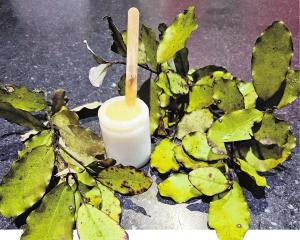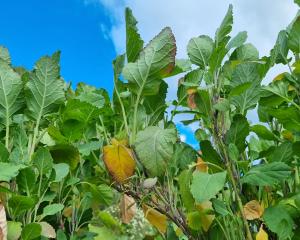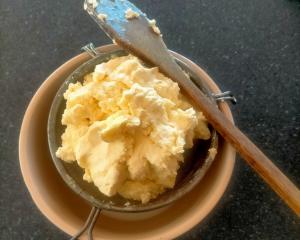

Only recently did I discover that acorns are in fact edible, nutritious and versatile.
Native American tribes in California used acorns as their staple food. There is a variety of oak endemic to the area, and because oaks are such prolific croppers, and their acorns easy to gather, they had no need to resort to boring hard work such as agriculture and could continue hunting and gathering, because acorns made up half their diet.
It is always good to find out about prolific, and available, free food sources. At present there is little competition for acorns from humans as they don’t know the nuts are edible. However rats are another matter all together. It took me some time to find a chestnut tree in a big open park where the acorns had not already been devoured by rats. The acorns were large and it only took a very short time to gather a bucket full. Because the acorn shells are thin and the inner kernel completely fills the shell, it is really easy to gather a decent volume.
The reason people gave up on acorns was because they need to be leached to remove the bitter tannin.
To process the nuts, leave them laid out on trays to dry thoroughly so the nut kernel detaches from the outer shell. This makes them much easier to hull cleanly.
Once you have your kernels out, rub off the brown testa (seed coat).
The next step is leaching, or soaking, in many changes of water to remove the tannin.
I leached my shelled kernels whole in a bucket and changed the water every day until there was no sign of brown tannin in the water, this took a bit more than a week, and then I laid the kernels out on trays again to dry. I have since seen that people grind the hulled kernels before leaching them, and then either use the damp flour as is, or dry it again for storage.
Once you have dried the acorns after leaching they can be stored for years as they dry very hard.
I ground mine to flour in small batches using a wee electric coffee and spice grinder.
The flour contains protein, unsaturated fat, vitamins A and E, iron, magnesium, calcium, phosphorus and many antioxidants. What it doesn’t contain is gluten.
I wasn’t sure how it would bind baking together, and many of the recipes I found also contained other flours. I did some experiments and added some psyllium husk, but I am not sure if this is actually necessary. Both of my baking experiments were very successful. The flour bakes to a very dark colour, with nutty and tasty flavours. The crackers are amazing.
I tried making coffee by roasting the acorn grits until very dark, and then brewing it in an espresso pot. The problem was the heat turns the starch into a sticky substance in the pot, so it didn’t extract very well. I had more success just putting a big spoon full of the finely ground dark roasted acorn flour in a cup of frothed oat milk. Acorns have been used as a coffee replacement for a long time, but I can think of nicer replacements for coffee.
Other uses for acorns are as porridge, as milk, as a jelly, as butter, even oil can be extracted from them. They are definitely versatile.
I shall be doing more experiments as I really like the flavour of the acorn-baked goods, and now that I know they are edible I shall be keeping an eye out for oak trees with big acorns, and no rat population nearby.

Acorn seedy crackers
100ml pumpkin seeds
100ml sunflower seeds
10ml sesame seeds
50ml of oil
200ml of acorn flour
1 tsp of psyllium husk powder
1 tsp garlic powder
½ to 1 tsp of salt
Boiling water to mix.
Put all the ingredients in a bowl, stir in the boiling water until you have a thick, sticky dough.
Divide the dough in half. Put each blob of dough on a greased baking tray, pat down on the tray and shape into a rectangular shape, then cover it with a sheet of cling film and use a rolling pin to roll the dough out thinly. Remove the plastic, and score cracker shapes with a big knife. Bake at 170degC for around 15 minutes, when they should cool to a crisp texture.

Acorn fruit loaf
This loaf ends up looking like a dark fruit cake.
In a large pot, place the following:
1 cup water
¾ cup sugar
½ cup sultanas
1 cup of grated apple
1 Tbsp of oil
1 tsp of cinnamon
1 tsp of mixed spice
A handful of walnuts
Bring to the boil then take off the heat and add:
1½ cups of acorn flour
1 tsp of psyllium husk powder
1 tsp of baking powder
½ tsp of baking soda.
Mix together and tip into a loaf tin.
Bake at 180degC for 45 minutes or until a skewer comes out clean.
Leave it to cool before slicing.












